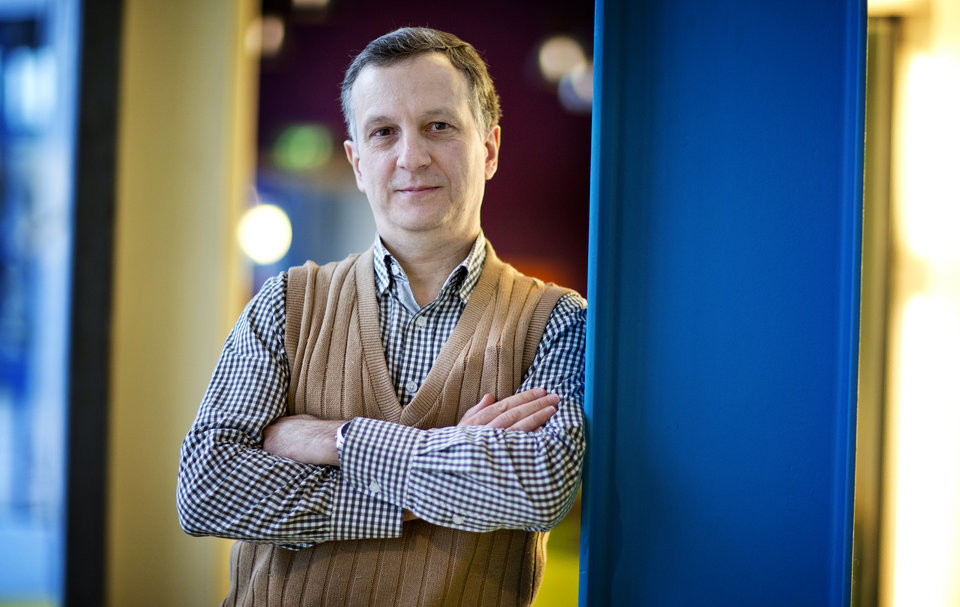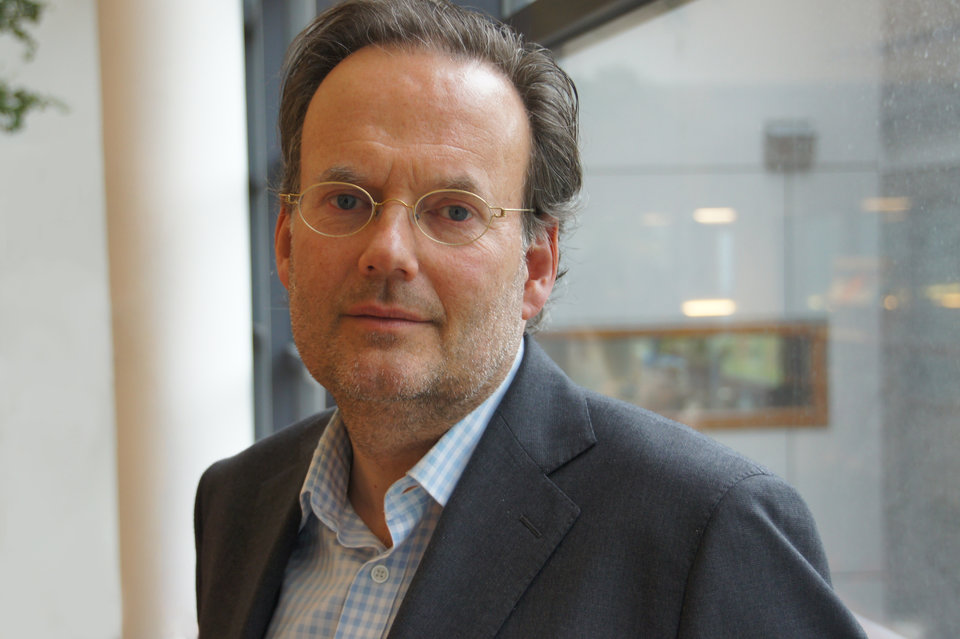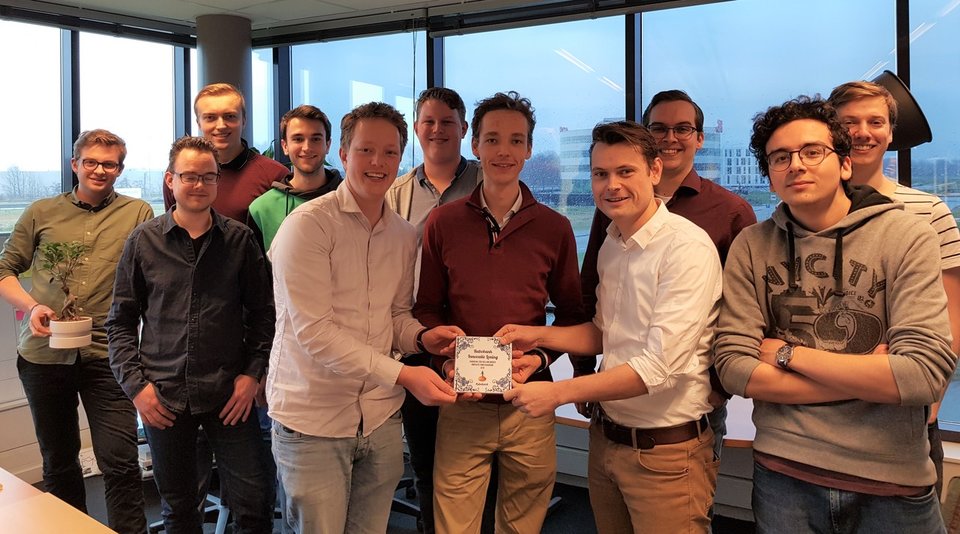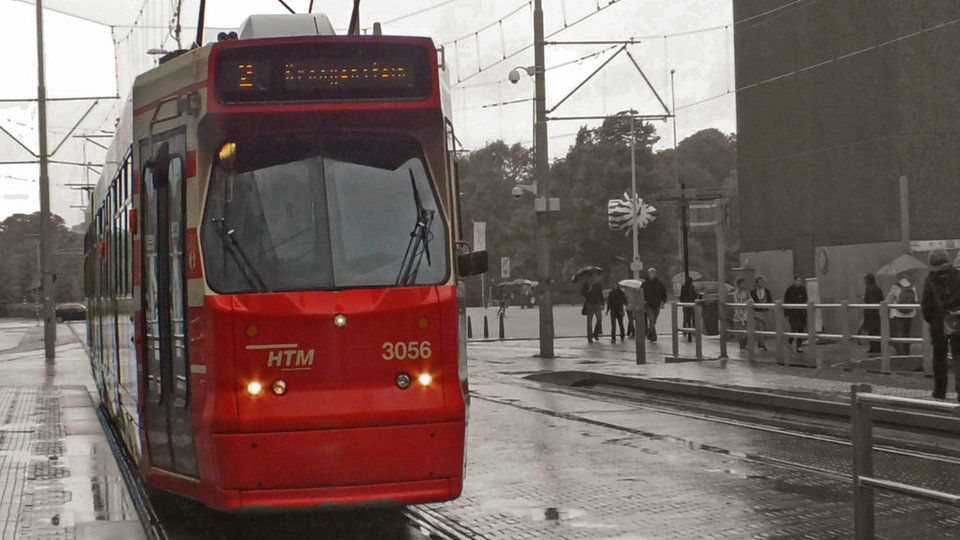Solar charging of electrical vehicles
Solar charging of electrical vehicles Electric cars are seen as the sustainable future of transport. But they are only truly sustainable if the electricity used to charge them comes from sustainable sources and not from fossil fuels. This is why researchers and businesses are also looking into charging electric vehicles with solar panels. TU Delft has developed a quick charger together with the companies Power Research Electronics and Last Mile Solutions which can charge cars directly with electricity from solar panels. Direct current Solar photovoltaic panels (PV) generate direct current (DC) and this normally had to be converted to alternating current (AC) before it could be used to charge an electric car. ‘Charging stations are currently using the 50Hz AC network to exchange power between the solar panels and the vehicle,’ explains Gautham Ram. ‘However, this is not efficient or cost-effective, for two reasons. Firstly, converting to AC results in unnecessary steps and power loss. And, secondly, it requires two separate DC-AC converters, one for the vehicle and one for the solar panels, resulting in increased costs and size.’ Interim stage unnecessary ‘A more self-evident solution would be to use a single converter, which could charge the vehicle from the panels via a DC link while also being connected to the AC electricity grid. In this study, we therefore designed a 10kW converter with an internal DC link and three terminals, which can charge the vehicle both from the solar panels and the electricity grid. The integrated DC charger has a higher efficiency and is about three times smaller than existing solutions based on AC power exchange.’ The use of this charger means that the electricity grid is no longer needed as an interim stage in charging. In addition, the system works two ways. Not only can you charge your electric car with solar power, the energy from the charged car battery can also be used to supply your house or the grid with electricity, although this first requires conversion into alternating current. This concept is referred to as ‘vehicle-to-grid’ ‘The developed converter is used in a solar charging station, including smart charging algorithms. Charging the vehicle with solar energy resulted in zero CO2 emission, lower fuel costs, tax benefits and less dependence on the feed-in tariffs for renewable energy.’ Prof. dr. Pavol Bauer +31 15 27 84654 p.bauer@tudelft.nl dr. Ir. Gautham Ram +31 15 27 81898 g.r.chandramouli@tudelft.nl Links Award IDtechEx– Most Significant Innovation for Electric Vehicles https://www.tudelft.nl/2018/ewi/pavol-bauer-gautham-ram-and-menno-kardolus-awarded-most-significant-innovation-in-electric-vehicles-prize / Department of DC Systems, Energy Conversion & Storage https://www.tudelft.nl/en/eemcs/the-faculty/departments/electrical-sustainable-energy/dc-systems-energy-conversion-storage/ DIG IT Research Exhibition: https://www.youtube.com/watch?v=6FPWXQ9Bbec&t=8s Electric Cars: Technology Obtain a comprehensive understanding of electric mobility to lead projects and initiatives to success: https://online-learning.tudelft.nl/courses/electric-cars-technology / Related courses Partners









